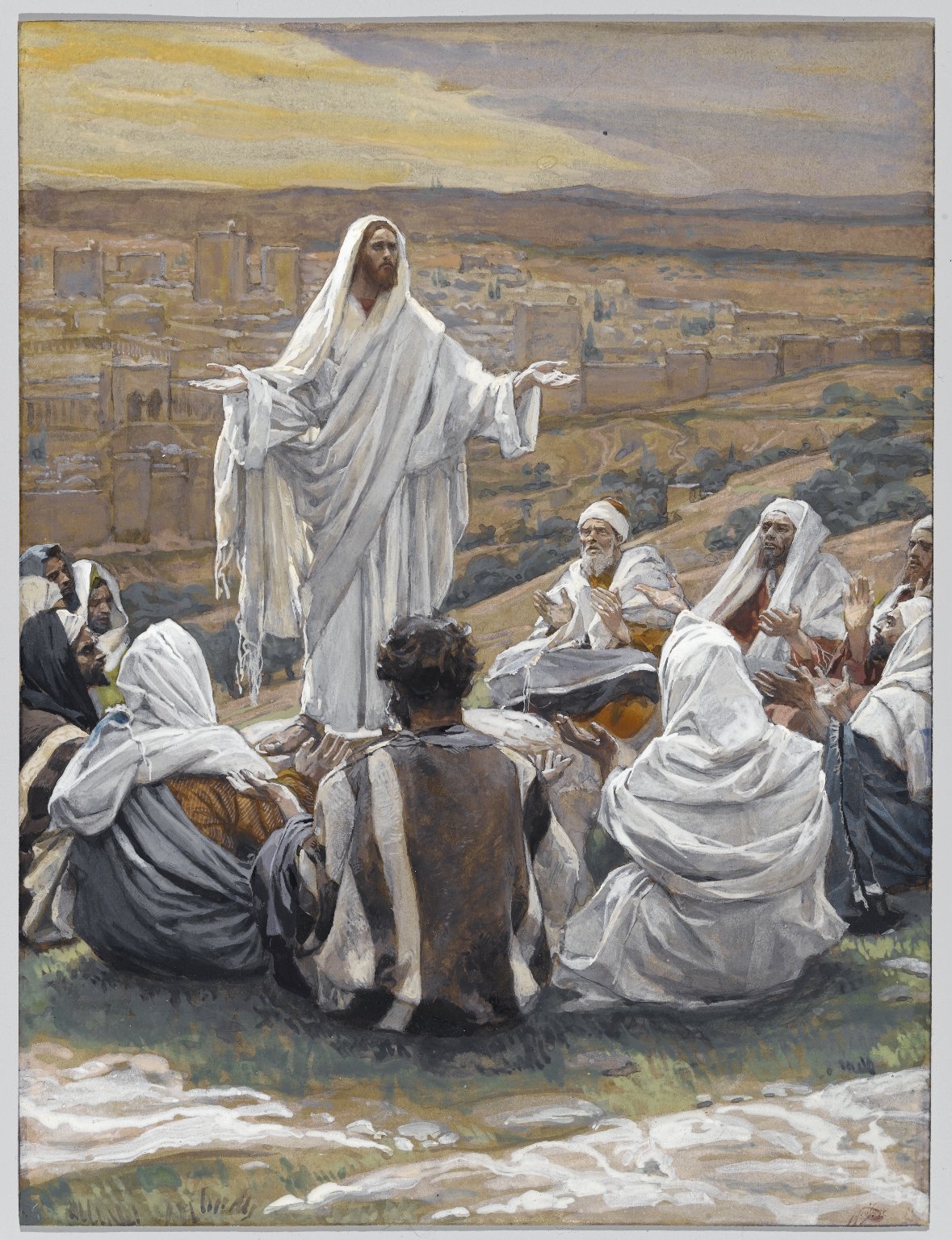“He said to them, ‘When you pray, say: Father . . .’” So begins our Lord’s beautiful catechesis on prayer. (Lk. 11:1-13) We should linger over that first word: Father. To say Father means to be a child. To say it authentically requires knowing oneself to be a child of God. So our Lord’s very first word on prayer contains the principle of divine filiation – our being children of God in the Son, able to go to the Father through, with, and in Him. Christian prayer rests on this fundamental truth. All prayer flows from our identity as children of God. Father is both the first and the last word on prayer.
In fact, the straightforward request that prompts our Lord’s instruction already indicates the childlike attitude necessary for prayer: “[O]ne of his disciples said to him, ‘Lord, teach us how to pray.’” The first step of prayer is to realize, like this disciple, that we do not know how to pray as we ought. (Rom. 8:26) Prayer begins not with our strength and knowledge but with our weakness and docility.
This truth is offputting to the proud but consoling to anyone who has tried to pray and found himself lacking. Praying requires the acknowledgement that we need to be instructed. In effect, every prayer begins with “Lord, teach me how to pray.”
An essential component of this childlike prayer is perseverance. We see this in the Patriarch Abraham, whose prayer anticipates that of the children of God. (cf. Gen. 18:20-32) In his haggling over the fate of Sodom and Gomorrah, he resembles a child negotiating a later bedtime. With the perseverance of a child who has set his heart on something and will not be dissuaded, Abraham keeps returning to the Lord with a new proposal.
But there is a notable difference between Abraham’s perseverance and ours. He appeals to the justice of God, Who will not sweep away the innocent with the guilty. He cries out, Should not the judge of all the world act with justice? Indeed, He should. But we appeal to God’s mercy even more. We ask Him to restrain His wrath and to assist us not because we deserve or have merited it but because we have a radical need for it. Our weakness lays claim to His assistance.

It is this appeal to the Father’s mercy that our Lord emphasizes in His instructions. We have confidence in our prayer to the Father not because we have an absolute right to His gifts but because we know ourselves to be His children. For that reason, we can keep returning to Him. For if we who are wicked know how to show mercy, how much more will our heavenly Father hasten to help us?
Of course, knowing the awful end of Sodom and Gomorrah, we might think that Abraham had wasted his time and effort. What did all that haggling get him? Nothing, it seems. Which raises another dimension of genuinely childlike prayer: abandonment to the Father’s will. A trusting child rests in the knowledge that his Father’s will is supremely good. If a prayer has gone “unanswered,” it is because his Father knows better and has a greater good in mind.
We see this disposition in our Lord Himself as He prays that most childlike prayer: “Abba, Father, all things are possible to you. Take this cup away from me, but not what I will but what you will.”(Mk. 14:36)
In a certain sense, that greater good is already realized in the act of prayer itself. Abraham’s prayer was not wasted because by way of it he grew in his capacity to trust and to enter into conversation with God. Yes, we should bring our earthly needs to our Father. We can, however, become so focused on the outward, external answer to our prayers – the “fixing” of the situation – that we overlook the interior effect that praying itself has on us.
Our Father does not simply want to solve all our problems for us. He wants something more for us. He desires that we draw closer to Him in our prayer by entrusting our cares to Him. And if He does solve our problems, it is so that in experiencing His power and goodness we will trust Him even more.
All of which brings us to that last, mysterious line in our Lord’s catechesis: “[H]ow much more will the Father in heaven give the holy Spirit to those who ask him?” We seek and ask for many things in prayer. We knock (sometimes bang) on the door of heaven with various requests. But our Lord’s words indicate that the ultimate end of our petitions is not this or that thing, but something greater: indeed, the Spirit Himself.
Our Father always answers our prayers (either yes or no) with a view to giving or increasing the gift of His Spirit. We might intend our prayer only for this or that situation. He intends it for more, for drawing us closer to Himself. He desires not so much that we receive what we think we need here and now but that we grow in union with Him.
Whether we realize it or not, our prayer is always directed to this increase of the Spirit, the Spirit of Sonship, Who prays from within us and enables us to cry out, Abba! Father!
*Image: The Lord’s Prayer (Le “Pater Noster”) by James J. Tissot, c. 1890 [Brooklyn Museum]














